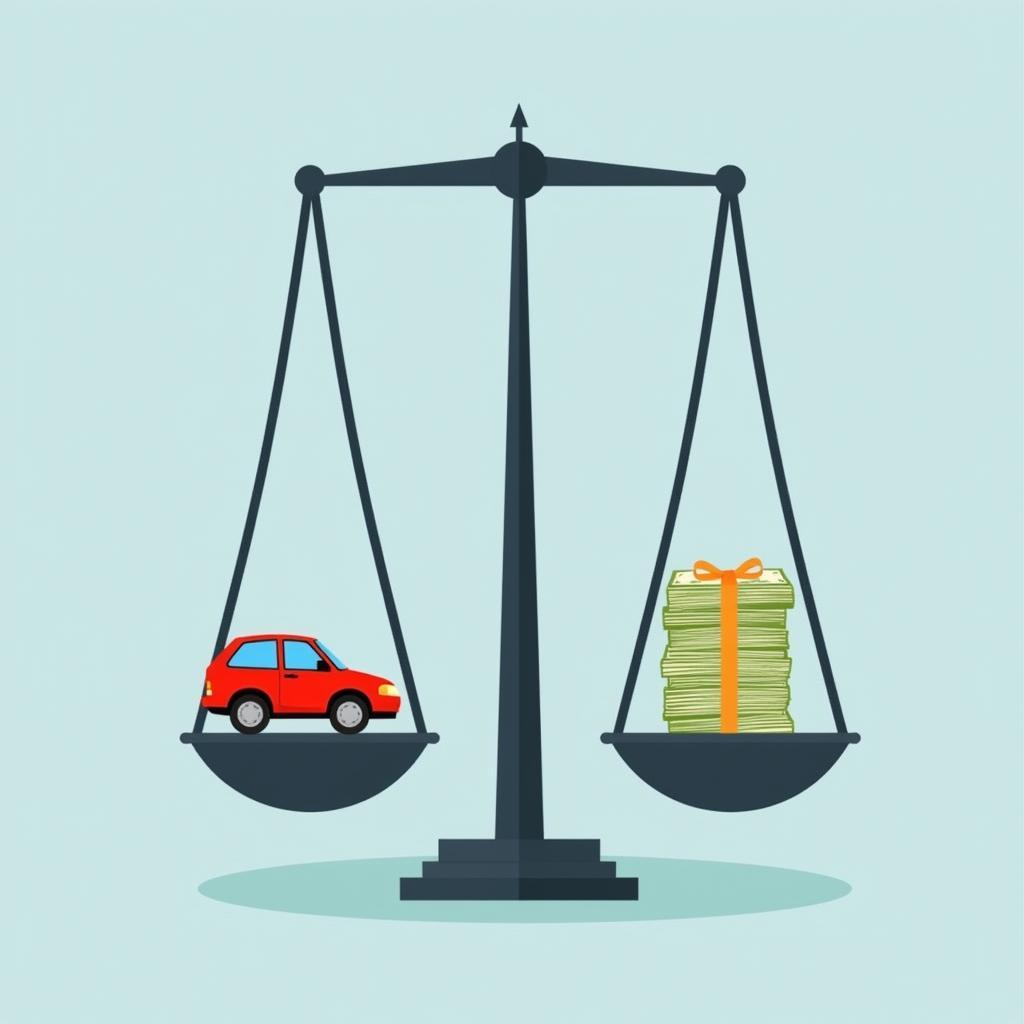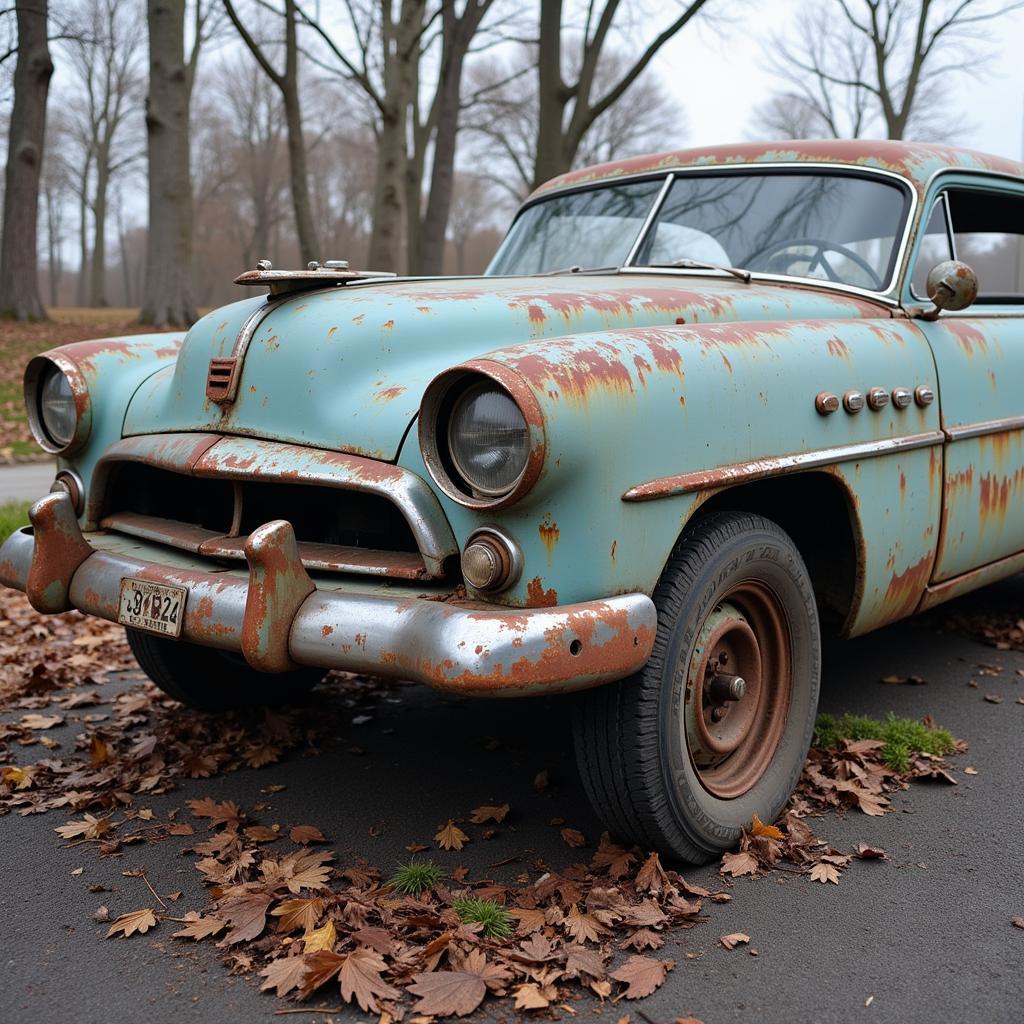Maintaining your car is crucial for safety, reliability, and longevity. But there comes a point when the costs outweigh the benefits. Knowing when to stop doing maintenance on your car is a tricky decision, and it depends on a variety of factors, from the vehicle’s age and condition to your budget and personal needs.
Similar to how much to budget for car maintenance and repair, calculating the long-term cost is important. Is it worth pouring money into an aging vehicle, or is it time to consider a replacement? This article explores the key indicators that it might be time to scale back on car maintenance.
Is Your Car’s Value Less Than the Repair Costs?
One of the most obvious signs is when the cost of repairs exceeds the car’s value. If you’re facing a major repair, like a transmission rebuild or engine replacement, get a quote and compare it to the car’s current market value. If the repair cost is significantly higher, it might be more economical to invest in a newer, more reliable vehicle. This is a common scenario with older cars, where accumulated wear and tear leads to more frequent and costly repairs.
What if the Car is Sentimental?
Sometimes, a car holds sentimental value. Maybe it’s your first car, or a family heirloom. In such cases, the decision becomes more emotional than financial. You might be willing to invest more in repairs than the car is technically worth. However, even with sentimental value, there’s a limit. Continuously pouring money into a car that constantly breaks down can become a financial burden.
 Car Value vs. Repair Costs – A Balancing Act
Car Value vs. Repair Costs – A Balancing Act
When Should You Stop Doing Routine Maintenance on Your Car?
While major repairs can be a clear sign, deciding when to stop routine maintenance like oil changes and tire rotations is less straightforward. Stopping routine maintenance can lead to more significant issues down the line, accelerating the car’s decline. However, if your car is nearing the end of its lifespan, and you plan to replace it soon, scaling back on some routine maintenance might be acceptable. For instance, you might decide to forego a major service if you plan to sell or trade in the car within a few months.
 Reducing Routine Car Maintenance – When is it Acceptable?
Reducing Routine Car Maintenance – When is it Acceptable?
Is Rust and Corrosion Taking Over?
Rust and corrosion can be significant factors in determining when to stop investing in your car. Extensive rust, especially on structural components, can compromise the vehicle’s safety and integrity. Repairing rust damage can be expensive and time-consuming, and in some cases, it might not be possible to fully restore the car to a safe condition. If rust is becoming a major issue, it’s often a sign that the car’s useful life is nearing its end.
“Rust is like cancer for a car,” says John Davis, a seasoned automotive technician with over 20 years of experience. “Once it takes hold, it’s difficult and expensive to eradicate completely. At some point, the battle becomes too costly to fight.”
When is the Mileage Too High?
High mileage isn’t always a reason to stop maintaining your car. Well-maintained vehicles can run reliably even with high mileage. However, as mileage increases, the likelihood of parts failing increases. This means more frequent repairs and higher maintenance costs. Consider your budget and how much you’re willing to spend on an older, high-mileage car. If the potential repair costs become excessive, it might be time to consider replacing the vehicle. Just like edmunds car maintenance costs, consider the projected costs based on your car’s make and model.
How Does Reliability Factor In?
Even if your car is relatively new, consistent reliability problems can be a significant drain on your finances and patience. If you’re constantly dealing with breakdowns and repairs, even if they’re covered under warranty, the inconvenience and disruption can be substantial. At some point, the constant trips to the repair shop might outweigh the benefits of owning the car. As Maria Sanchez, an automotive consultant, advises, “Sometimes, cutting your losses and moving on to a more reliable vehicle is the best decision for your peace of mind and your wallet.” Similar to [what does routine maintenance mean on a car](https://autotippro.com/what does-routine-maintenance-mean-on-a-car/), understanding when to move on is key.
Conclusion
Deciding when to stop doing maintenance on your car is a personal decision based on various factors, including cost, value, reliability, and sentimental attachment. While regular maintenance is crucial for a car’s longevity, there comes a time when the cost of upkeep outweighs the benefits. By carefully considering the factors discussed in this article, you can make an informed decision about when it’s time to let go. For personalized advice and assistance with your car maintenance decisions, connect with us at AutoTipPro. Our team of experts is ready to provide tailored guidance to help you make the best choice for your individual needs. You can reach us at +1 (641) 206-8880 or visit our office at 500 N St Mary’s St, San Antonio, TX 78205, United States. We also have helpful guides, similar to how much money should i set aside for car maintenance, to help you navigate these decisions.
FAQ
- At what mileage should I consider stopping major maintenance?
- How do I determine the market value of my car?
- Is it worth repairing rust on an older car?
- What are the signs of a failing transmission?
- How can I find a reliable mechanic?
- When is it more cost-effective to buy a new car than repair an old one?
- What are the long-term costs of neglecting car maintenance?







Leave a Reply